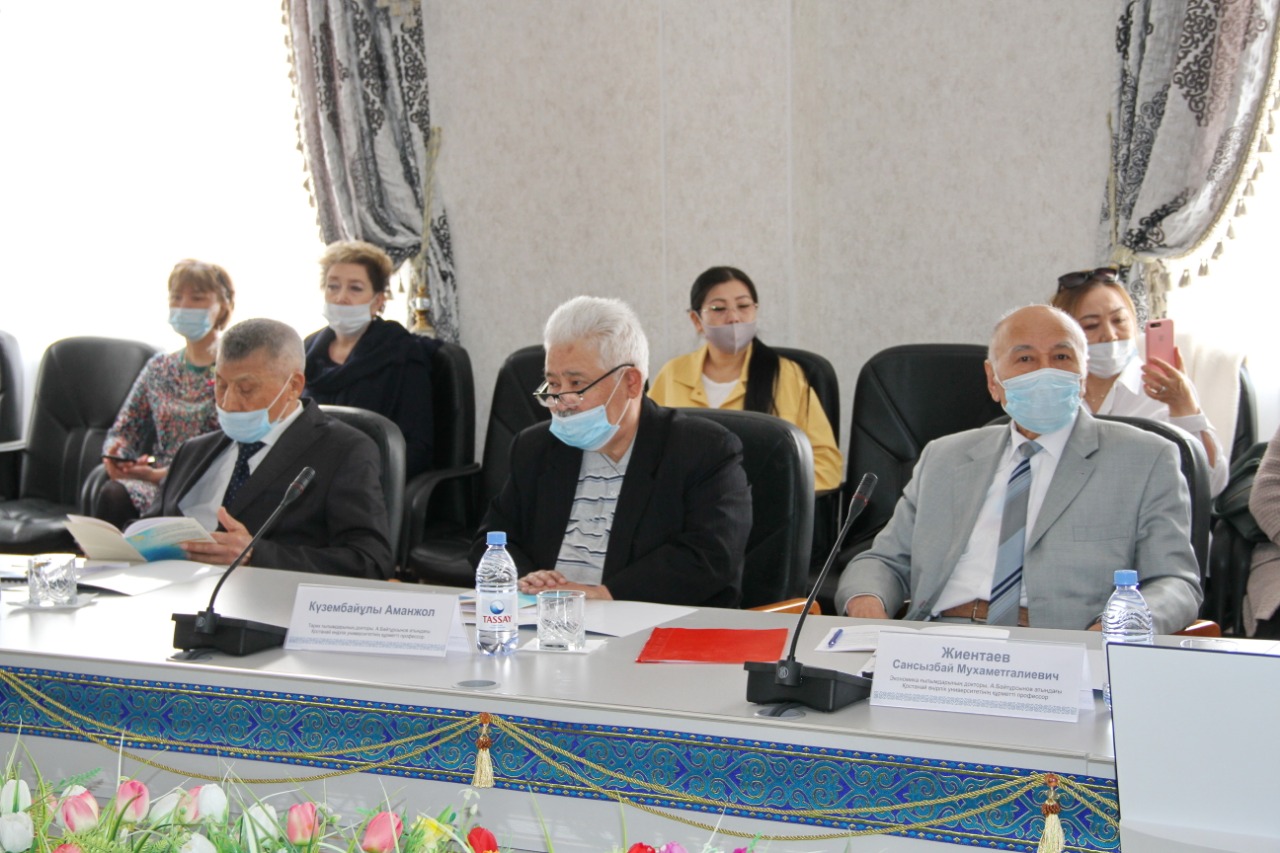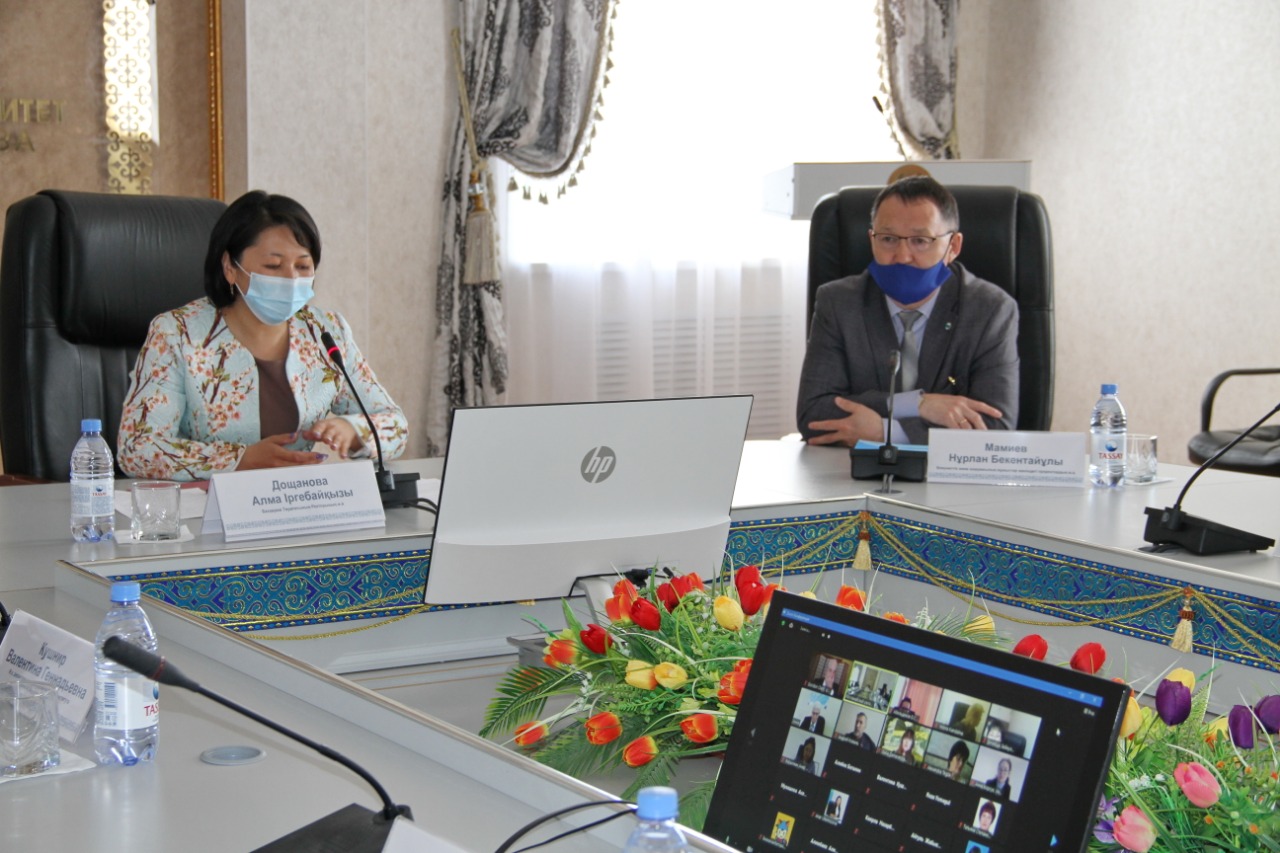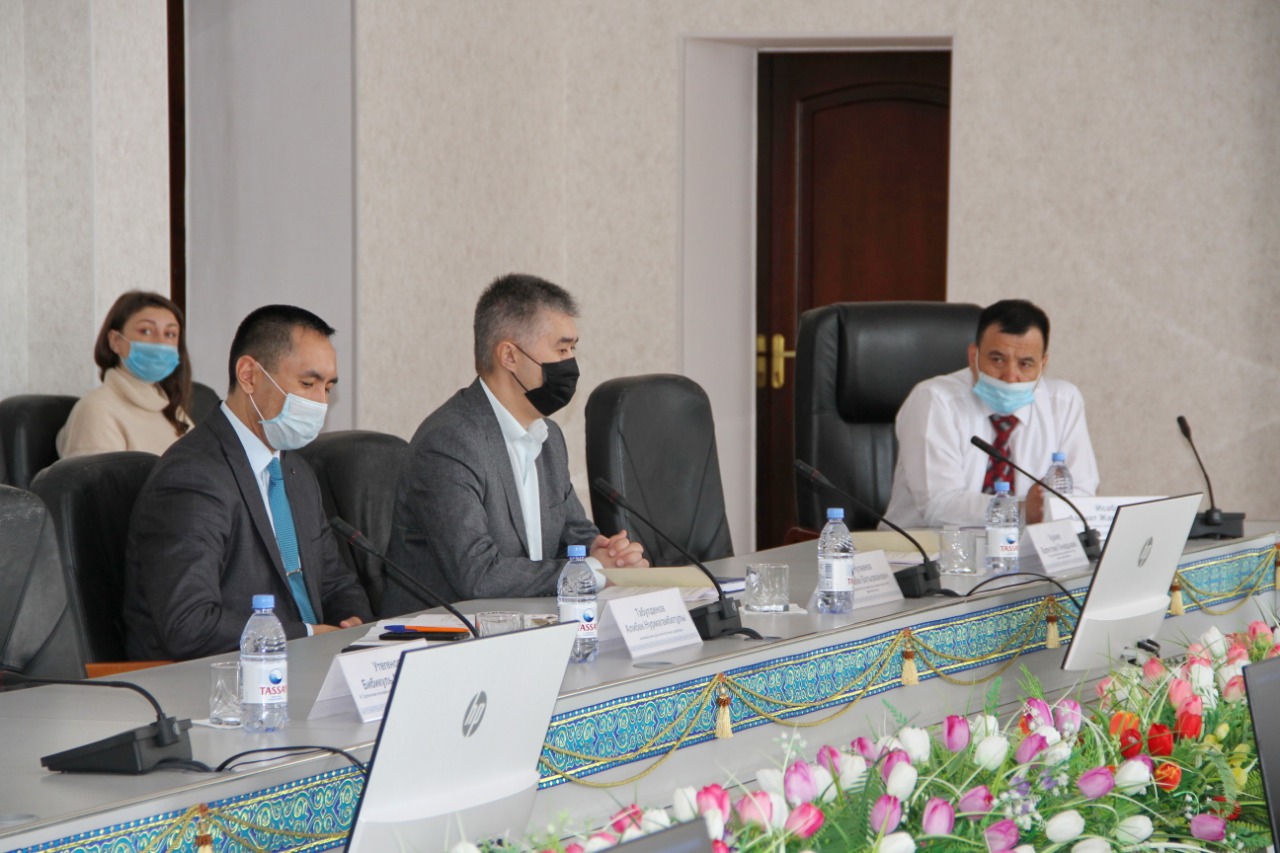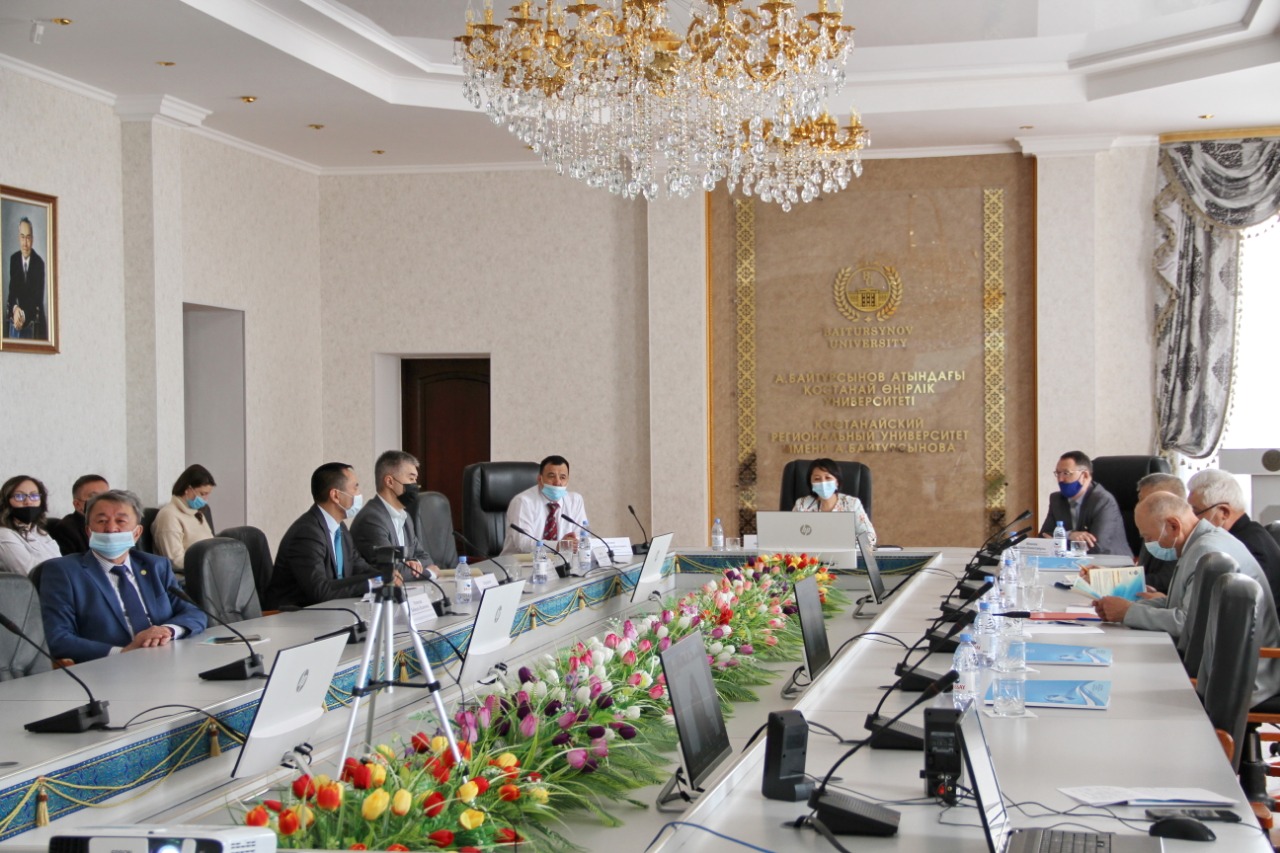Kostanay Regional University named after Akhmet Baitursynov hosted the annual international scientific and practical conference "Baitursynov Readings - 2021" "Independent Kazakhstan: Achievements and Successes as a Reliable Basis for Building a Dynamically Developing State of the 20th Century", which was attended not only by scientists of the university, but also by representatives of the Ministry of Education and Science of the Republic of Kazakhstan, the Akimat of the Kostanay region, higher educational institutions of far abroad, the CIS and the Republic of Kazakhstan, the scientific and pedagogical community of Kazakhstan and Abroad.
The status and importance of this conference are emphasized by its participants, scientists of the Institute of History and Ethnology named after Ch. Valikhanov; Institute of Linguistics named after A. Baitursynov; Arkalyk Pedagogical Institute named after Ibrai Altynsarin; Intensive English Institute, International Relations, University of North Texas; Institute of Applied Agricultural Research; College of Economics and the Environment of Nürtingen-Geislingen, Germany; Swedish University of Agricultural Sciences, Uppsala; All-Russian Research Institute of Agricultural Economics.
The plenary session, with the participation of scientists from the Kostanay Regional University named after A. Baitursynov, which was held in an offline format, was opened by the Acting Vice-Rector for Science, Internationalization and Digitalization Gulshat Shaikamal. Speaking about the achievements in science and education over the 30 years of Independence, it can be said that over the years, Kazakhstan has formed a national model of education, formed a regulatory legal framework, adopted the laws of the Republic of Kazakhstan "On Education", "On Higher Education", "On Science", "On the Rights of the Child in the Republic of Kazakhstan", "On the State Educational Savings System", "On the Commercialization of the Results of Scientific and (or) Scientific and Technical Activities". "On the Status of a Teacher" and others.
Kazakhstan is a participant in the Bologna process, according to which the transition to a three-stage model of personnel training has been carried out: bachelor's degree - master's degree - doctoral studies.
All these processes could not but affect the activities of regional universities.
- Our university is an active participant in the development of the national model of education. The university provides training in 174 bachelor's degrees, 79 master's programs and 18 doctoral programs. 70% of the university's programs are included in the republican TOP-10 ranking of universities conducted by Atameken NCE. The immediate goal of the university is to enter the TOP-3 of the best regional multidisciplinary universities in Kazakhstan by 2025, Gulshat Shaikamal said. - Speaking about the regional university, it is worth noting the leading positions in the number and sustainability of the ERASMUS and ERASMUS+ international projects being implemented: the results of 14 projects in all areas of training are being implemented in educational programs.
It is worth noting that the university has established partnerships with more than 100 universities from far and near abroad. Active work is underway to develop external academic mobility. This year, despite the difficult situation in the world, more than 600 students from Russia and Kyrgyzstan have been trained under the virtual academic mobility program at the A. Baitursynov KRU.
In addition, the university is implementing a project ratified by the Governments of Kazakhstan and Russia to create an engineering center together with KAMAZ PTC; work is underway to transform the university into a Center of Academic Excellence.
Currently, the university implements 12 scientific projects of grant financing of the Ministry of Education and Science of the Republic of Kazakhstan with total funding of 255 million tenge, research work is carried out annually at the request of enterprises for a total of 40 million tenge. Much attention is paid to environmental and resource-saving technologies: 3 international educational programs on alternative energy and waste management have been developed and implemented.
The work of the sections was held in 6 areas: "Täuelsіzdіk tūğyry: history and modernity"; "Consonance and Continuity of the Enlightenment Ideas of the Chosen Altynsarin to the Conditions of Modern Education"; "Kazakhstan in the context of globalization in the international, political, economic, social and legal spheres"; "Trends in Modern Education: Personality-Oriented Principles, Digitalization and Modernization of the National Cultural Code"; "Modern Science and Technology: Innovative Ideas and Development Prospects"; "Practical applicability and commercialization of research results in the agro-industrial complex", where more than 60 speakers spoke on a variety of topical issues of education and science. Due to the epidemiological situation in the world, the work of the sections was held in an online format.



